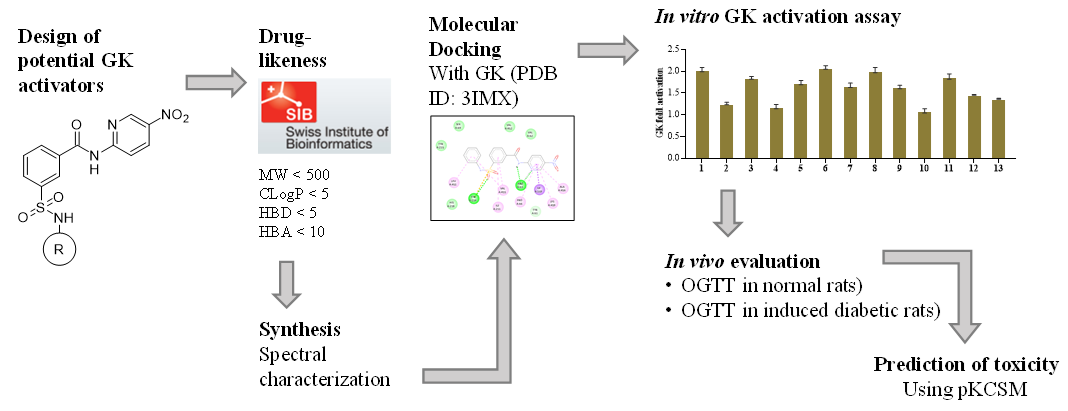Design, synthesis and biological evaluation of novel sulfamoyl benzamides as allosteric activators of human glucokinase

DOI:
https://doi.org/10.62110/sciencein.cbl.2024.v11.657Keywords:
Antidiabetic activity, Diabetes, Glucokinase, Allosteric GK activators, Sulfamoyl benzamidesAbstract
Glucokinase (GK) activators, which target the GK enzyme, are an emerging class of therapeutics with promising effects against diabetes. The objective of this work was to create a new group of sulfamoyl benzamide derivatives with the ability to activate GK and evaluate their effectiveness in treating diabetes. From benzoic acid, several compounds containing sulfamoyl benzamide scaffold were synthesized and evaluated for their ability to activate GK in an in vitro enzymatic experiment. In silico docking analyses were employed to explore how the most suitable arrangements in the allosteric area of the GK enzyme interact during binding. The effectiveness of the identified substances in reducing high blood sugar levels was assessed using the oral glucose tolerance test (OGTT) in healthy rats. This evaluation was based on the results of laboratory tests on enzymes and in silico simulations. One of the most active compounds from the antihyperglycemic assay was then tested for its antidiabetic effects in an induced diabetic rat OGTT assay. The in vitro GK activation was best among compounds 1, 6, and 8 (activation fold: 2.03-2.09). In the OGTT assay (normal rats), compounds 1 and 6 showed promising antihyperglycemic activity. In vivo antidiabetic assay confirmed the consistency with in silico and in vitro outcomes. The newly synthesized derivatives of sulfamoyl benzamide have the potential to be used as a basis for the development of further GK activators that are both safe and efficacious and can be administered orally. These activators may be used as therapeutic agents to treat type 2 diabetes.
URN:NBN:sciencein.cbl.2024.v11.657







